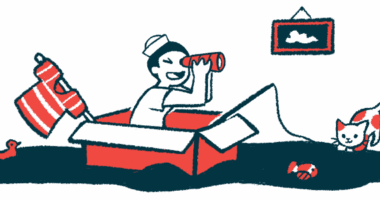When growing older, surviving SMA is more than enough

I’m listening to my caregiver’s daughter talk about life as a first grader when I realize …
I’m old.
I don’t know when it happened. One minute, I was graduating high school, and the next I was turning 30. The thought is terrifying. Where did all that time go? I remember the broad strokes of it all — writing, studying, playing Dungeons & Dragons with my friends in my parents’ basement — but the details are vague, blurry.
“I miss being little,” I tell my friends once my caregiver and her daughter have left for the day. “I miss feeling like I had potential.”
The world was wide enough
I sit with the feeling for the rest of the day, turning it around and around in my hands until it’s as smooth as a pebble.
I don’t miss being young. I had friends, but they weren’t the kind of friends I needed; I had dreams, but they were mottled by how much I hated SMA. I loved the world, but the world didn’t love me, a shy teenager with a degenerative neuromuscular disease who only wanted to belong.
Growing older has its benefits, like learning about disability pride and finding people who love me for me. I am, admittedly, a little less starry-eyed, but that’s a good thing. I know the world will try to confine me, just like I know I can overcome whatever obstacles come my way. There’s a realism I was missing at the age of 16, watching “Beauty and the Beast” in bed while my peers were living it up at homecoming.
But I miss the optimism. I miss feeling like my whole life was ahead of me. I miss dreaming about all the things I would do when I got older — because now I am older, and while my life is better than I could’ve imagined, it’s not the life I envisioned as a 16-year-old.
Later, I’m telling my dad that I miss being young. He laughs, because he knows exactly what I’m talking about. “You were told growing up that you could do anything you wanted,” he says. “And now reality is setting in, and you’re realizing that not everything is possible.”
He’s not wrong. But there’s part of the equation, I think, that is specific to SMA. Many of us should not be alive right now. Every day — every breath — is a miracle. So, at least for me, because my continued survival is extraordinary, it feels like everything I do has to be extraordinary on some level. I can’t just have a normal life with a normal job and normal ups and downs.
So I push myself to the brink of burnout. I try harder and harder until I have no energy left. Survival isn’t enough; I have to make every moment count.
What the living do
In moments like these, I find myself returning to a well-loved poem: “What the Living Do,” by Marie Howe. In it, Howe speaks to her younger brother, Johnny, who died from AIDS-related complications in 1989. She details a variety of mundane, everyday things, like a clogged sink or the headstrong blue of a winter sky. And then, like a prayer undergirding the rest of the poem: “For weeks now, driving, or dropping a bag of groceries in the street, the bag breaking, I’ve been thinking: This is what the living do.”
Those mundane, everyday things that make up a life — Howe blesses them all. Buying a hairbrush. Slamming the car door shut in the cold. What her brother called “that yearning.”
“We want more and more and then more of it,” Howe writes, referring to life itself.
Most days, she lives in a perfectly ordinary universe. But then there are moments when Howe is gripped by a “cherishing so deep” that she is speechless. Those mundane, everyday things might seem ordinary, but they are, in fact, what the living do, which in itself makes them worthwhile.
My life is not what I thought it would be at 16. But it is still life. It is ordinary and stupendous, and sometimes, when I think to look for it, there is even magic to be found.
Survival isn’t nothing. Some days, it’s everything. And on the days when I find myself longing for “more and more and then more of it,” I will remember the girl I once was, starry-eyed and living in an enchanted universe.
Thanks for reading! You can follow me on Instagram and Threads, subscribe to my newsletter, or support me on Substack.
Note: SMA News Today is strictly a news and information website about the disease. It does not provide medical advice, diagnosis, or treatment. This content is not intended to be a substitute for professional medical advice, diagnosis, or treatment. Always seek the advice of your physician or other qualified health provider with any questions you may have regarding a medical condition. Never disregard professional medical advice or delay in seeking it because of something you have read on this website. The opinions expressed in this column are not those of SMA News Today or its parent company, BioNews, and are intended to spark discussion about issues pertaining to spinal muscular atrophy.
The post When growing older, surviving SMA is more than enough appeared first on SMA News Today.




